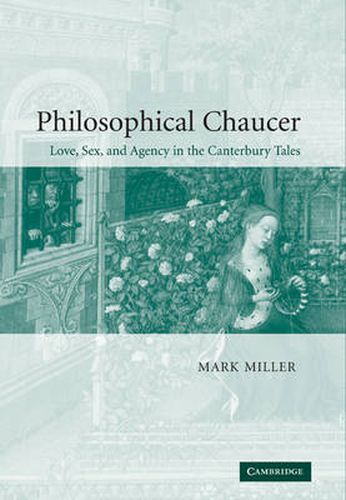Readings Newsletter
Become a Readings Member to make your shopping experience even easier.
Sign in or sign up for free!
You’re not far away from qualifying for FREE standard shipping within Australia
You’ve qualified for FREE standard shipping within Australia
The cart is loading…






Mark Miller’s innovative study argues that Chaucer’s Canterbury Tales represent an extended mediation on agency, autonomy and practical reason. This philosophical aspect of Chaucer’s interests can help us understand what is both sophisticated and disturbing about his explorations of love, sex and gender. Partly through fresh readings of the Consolation of Philosophy and the Romance of the Rose, Miller charts Chaucer’s position in relation to the association in the Christian West between problems of autonomy and problems of sexuality and reconstructs how medieval philosophers and literary writers approached psychological phenomena often thought of as distinctively modern. The literary experiments of the Canterbury Tales represent a distinctive philosophical achievement that remains vital to our own attempts to understand agency, desire and their histories.
$9.00 standard shipping within Australia
FREE standard shipping within Australia for orders over $100.00
Express & International shipping calculated at checkout
Stock availability can be subject to change without notice. We recommend calling the shop or contacting our online team to check availability of low stock items. Please see our Shopping Online page for more details.
Mark Miller’s innovative study argues that Chaucer’s Canterbury Tales represent an extended mediation on agency, autonomy and practical reason. This philosophical aspect of Chaucer’s interests can help us understand what is both sophisticated and disturbing about his explorations of love, sex and gender. Partly through fresh readings of the Consolation of Philosophy and the Romance of the Rose, Miller charts Chaucer’s position in relation to the association in the Christian West between problems of autonomy and problems of sexuality and reconstructs how medieval philosophers and literary writers approached psychological phenomena often thought of as distinctively modern. The literary experiments of the Canterbury Tales represent a distinctive philosophical achievement that remains vital to our own attempts to understand agency, desire and their histories.